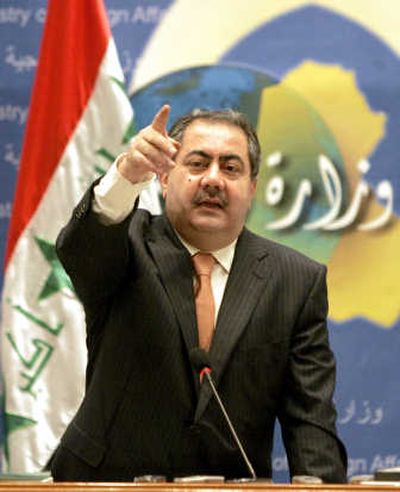Iraqis pessimistic on making progress

BAGHDAD – Iraqi politicians on Thursday struck a more pessimistic tone about Iraq than did the White House assessment, and said the deadlock between warring Sunni and Shiite factions makes major political progress unlikely in coming months.
Some Iraqi leaders, including members of Prime Minister Nouri al-Maliki’s ruling Shiite alliance, added that American officials have set unrealistic goals that the Iraqi government cannot achieve at a time of such instability and violence.
Setting timelines and benchmarks according to Washington’s political calendar will be counter-productive to Iraq’s success, allowing the government’s adversaries to work harder to shatter Iraq’s efforts to bring security, said Foreign Minister Hoshyar Zebari.
“I was the first to argue, these are not your benchmarks, these are our goals. Why do you make it yours?” Zebari, an ethnic Kurd, said in an interview earlier this week. “I think some of the difficulties we’ve been through in the past is because we have been held hostage to these timelines.”
The 25-page White House document, an assessment mandated by Congress, outlined what it described as some progress on eight of 18 initiatives. But on some of the most significant benchmarks, such as passing legislation to manage Iraq’s oil resources, and bringing former Baath Party members back into the political fold, the Iraqi government showed unsatisfactory progress, according to the report.
“The problem is we are required to push things through because Congress has it on paper,” said Haider al-Ebaidi, a Shiite politician from al-Maliki’s Dawa Party. “While here, in reality, it is not necessarily right that some of these things should be passed.”
Al-Ebaidi said many Shiites view reconciling with former Baathists as “rewarding those people who have been responsible for torturing and killing.” Sunnis, on the other hand, feel that the steps being discussed do not go far enough to bring back civil servants who had little or nothing to do with the repressive policies of former president Saddam Hussein.
Iraq’s oil law, considered by U.S. officials to be a top priority, has yet to be discussed in Parliament, despite a May 31 Iraqi deadline. A boycott by Sunni ministers from Cabinet meetings has hindered the progress on the law, as have reservations about how Iraq’s predominantly Shiite, Sunni, and Kurdish regions can share revenue equitably.